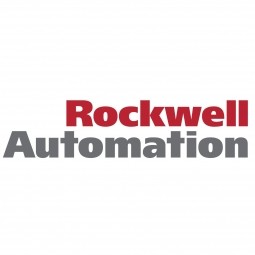实例探究.
添加案例
我们的案例数据库覆盖了全球物联网生态系统中的 22,657 家解决方案供应商。
您可以通过筛选条件进行快速浏览。
Download Excel
筛选条件
-
(5)
- (5)
-
(3)
- (2)
- (1)
-
(3)
- (2)
- (1)
-
(2)
- (2)
-
(1)
- (1)
- 查看全部 5 技术
- (3)
- (1)
- (1)
- (3)
- (2)
- (1)
- (1)
- (1)
- 查看全部 5 功能区
- (3)
- (2)
- (1)
- (1)
- (1)
- 查看全部 7 用例
- (2)
- (2)
- (1)
- (6)
Selected Filters

|
互联企业优化设施和供应商网络
罗克韦尔希望为多样化的产品组合和各种制造流程实施灵活敏捷的全球 MES,并用跨越所有工厂的标准化系统取代单独的 ERP 系统和自定义应用程序。
|
|
|

|
King's Hawaiian 标准化技术要求
King's Hawaiian 希望为机器制造商创建一个通用基础架构,用于在新建站点上的第一个集中式数据收集系统
|
|
|

|
Hillshire Brands 通过制造智能策略提高产量
Hillshire Brands 在一磅香肠卷上的重量差异导致产品赠品增加并导致收入损失。
|
|
|

|
Hydro Tasmania 开发先进的公用事业级混合能源解决方案
开发混合能源系统并减少弗林德斯岛对柴油发电的依赖
|
|
|

|
Rockwell Automation and Microsoft Deliver on a Shared Vision to Accelerate Industrial Transformation
The manufacturing industry is undergoing a significant transformation, driven by the need for enhanced operational efficiency, scalability, and sustainable growth. Traditional industrial practices are being challenged by the rapid evolution of digital technologies, necessitating a shift towards more integrated and data-driven operations. Manufacturers face the challenge of capturing critical insights from existing sites without extensive retrofitting, while also needing to streamline the integration of shop-floor data with cloud-based applications. This requires advanced analytics and improved scalability across multi-site environments. Additionally, there is a need to empower the workforce with AI-driven tools that can enhance productivity, reduce errors, and accelerate decision-making. The challenge is to bridge the gap between traditional industrial practices and modern digital applications, creating solutions that unlock the full potential of industrial data.
|
|
|

|
Rockwell Automation and Microsoft Expand Partnership to Leverage Generative AI Capabilities for Enhanced Productivity and Faster Time-to-Market
Rockwell Automation and Microsoft are addressing the challenge of accelerating industrial automation design and development through the use of generative AI. The companies aim to empower the workforce and reduce time-to-market for customers building industrial automation systems. The integration of AI into automation processes is seen as a key area to streamline processes and enhance worker productivity. The challenge also includes improving design efficiency, mentoring newcomers, and finding relevant information to educate developers. Additionally, the companies are exploring ways to advance innovation in the industrial metaverse, using IoT capabilities, cloud datasets, simulations, and AI to design and build products more effectively, efficiently, and sustainably.
|
|




